Finally, Sunscreens Made for Dark Skin Tones
Dermatologists and 'Marie Claire' editors share their favorite formulas that last—and never leave a white cast.

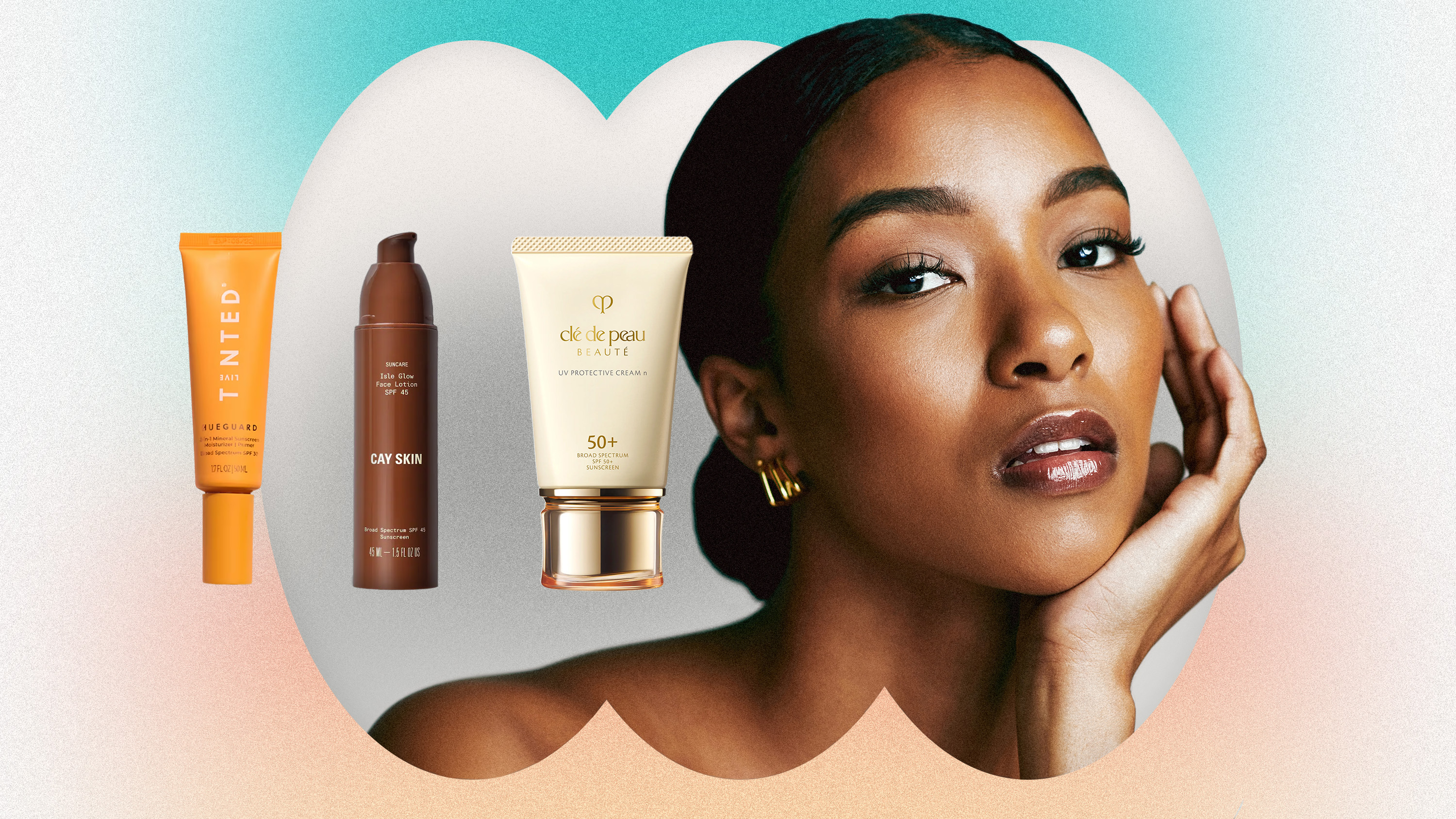
Select the newsletters you’d like to receive. Then, add your email to sign up.
You are now subscribed
Your newsletter sign-up was successful
Want to add more newsletters?

Delivered daily
Marie Claire Daily
Get exclusive access to fashion and beauty trends, hot-off-the-press celebrity news, and more.

Sent weekly on Saturday
Marie Claire Self Checkout
Exclusive access to expert shopping and styling advice from Nikki Ogunnaike, Marie Claire's editor-in-chief.

Once a week
Maire Claire Face Forward
Insider tips and recommendations for skin, hair, makeup, nails and more from Hannah Baxter, Marie Claire's beauty director.

Once a week
Livingetc
Your shortcut to the now and the next in contemporary home decoration, from designing a fashion-forward kitchen to decoding color schemes, and the latest interiors trends.

Delivered Daily
Homes & Gardens
The ultimate interior design resource from the world's leading experts - discover inspiring decorating ideas, color scheming know-how, garden inspiration and shopping expertise.
Everyone needs to wear sunscreen. But there is a common belief that people with dark skin tones can skip out on using sun protection. Not only is that a total misconception—it's deeply harmful.
"The idea that darker skin tones do not need to use sun protection comes from the idea that more melanin in the skin protects the skin from UV radiation," says Brendan Camp, M.D., a board-certified dermatologist at MDCS Dermatology. "Melanin forms a cap or cover over the nucleus of the cell in response to UV exposure, absorbing it and protecting cellular structures from damage. On its own, however, it is not sufficient to protect skin from the damaging effects of UV radiation, namely sunburns, sun damage, and skin cancer."
And while people of all skin tones should be vigilant about skin cancer prevention, those with dark skin should be especially mindful. "Although there is a lower occurrence of skin cancer in darker skin tones, there is a substantial increase in the level of severity when malignant melanomas do occur," says Tosin Eyikogbe, an aesthetic nurse practitioner in Houston, Texas. The deadly risks even led the American Academy of Dermatology to release new guidelines for people with darker skin tones that include wearing a broad-spectrum, water-resistant sunscreen with SPF 30.
It wasn't until recently, though, that sunscreens were formulated for people with dark skin tones, says Naana Boakye, M.D., a board-certified dermatologist and founder of Bergen Dermatology. Companies often marketed to those with fairer complexions. Sun protection options often contained high concentrations of zinc, which deposited white casts on dark skin, leaving people of color with few sun protection solutions that worked for them. Most people assumed that the lack of options pointed to a lack of need rather than widespread corporate neglect.
In the last few years, brands have made more of an effort to formulate sunscreens that work for dark skin tones. And so, to help you find the best ones—the ones that are practically invisible when applied and keep you properly protected—we asked the advice of multiple dermatologists and tried them for ourselves. For weeks, that meant testing products side by side, in warm climates, on a variety of skin types (dry, sensitive, and normal), and applying multiple times. Below are the ones you can really trust.
The Best Sunscreens for Dark Skin Tones
- Best Mineral Sunscreen for Dark Skin Tones: Nécessaire The Sunscreen
- Best Chemical Sunscreen for Dark Skin Tones: Clé de Peau Beauté UV Protective Cream Broad-Spectrum SPF 50+
- Best Hydrating Sunscreen for Dark Skin Tones: Révive Soleil Superiéur Broad-Spectrum
- Best Tinted Sunscreen for Dark Skin Tones: Colorescience Total Protection Face Shield Flex SPF 50
- Best Overall Sunscreen for Dark Skin Tones: Elta MD UV Clear Broad-Spectrum SPF 46
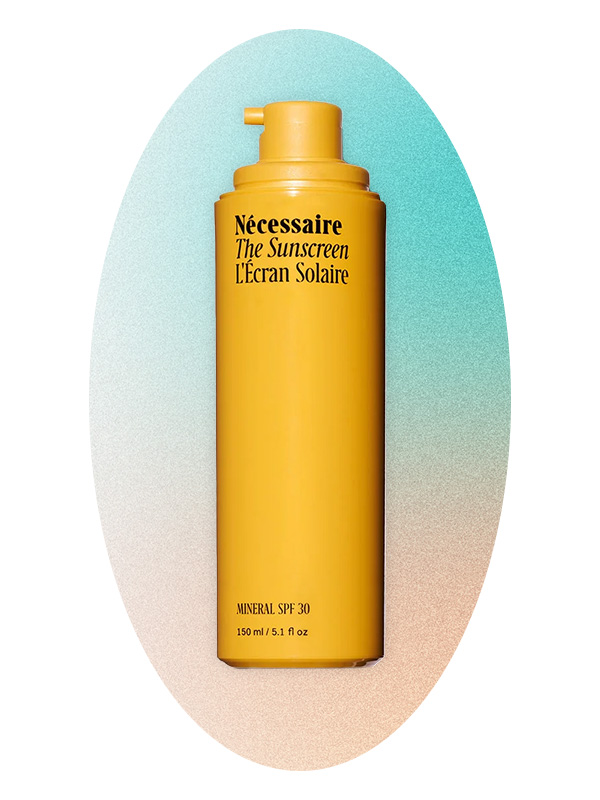
Nécessaire is one of our favorite skincare brands because of its potent, highly effective products, and this mineral sunscreen is no different. It contains an impressive 20 percent non-nano zinc oxide (an active ingredient that physically blocks sunrays unlike chemical sunscreens), along with hydrating ingredients like hyaluronic acid. With a simple pump that makes for easy application, it's ideal for use on the body, according to Deena Campbell, Marie Claire's beauty director. Although she adds, it does "require a bit of vigor to rub in" so you don't feel greasy (as Campbell shows in the video below).
Pros: Editor-approved; dermatologically tested; generous amount of product in each bottle; B-Corp certified brand; cruelty-free; fresh scent
Cons: Can be greasy
Active Ingredients: Niacinamide, panthenol hydrate, 20 percent non-nano zinc oxide, one percent laminaria saccharina (Algae)
White Cast: Minimal
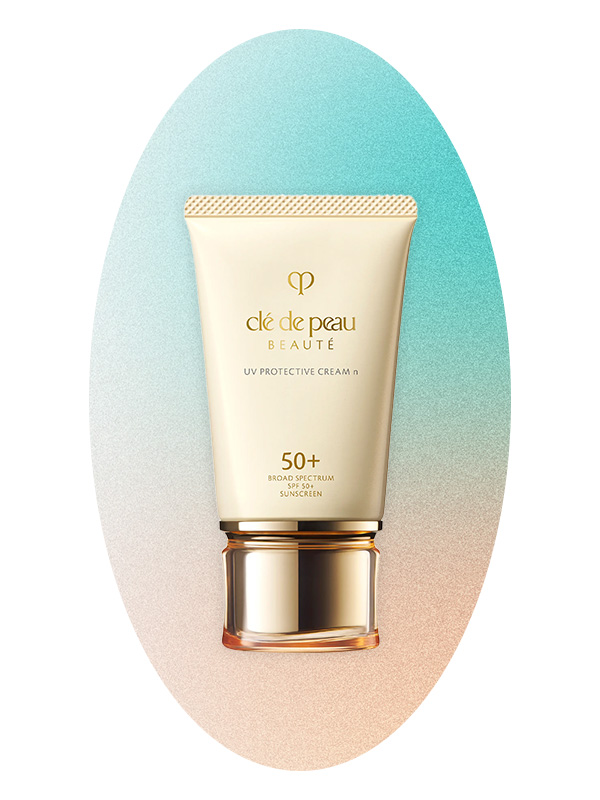
This creamy chemical sunscreen is perfect for people with dry skin. It has a hefty percentage of zinc oxide, which means that it provides a high degree of sun protection, while also containing soothing natural ingredients like ginseng extract. Campbell considers this one of her "if I were stranded on an island products," for its non-greasy finish (notice her subtle shine below), complete lack of white cast, and ability to work well with foundations and concealers.
Pros: Broad-spectrum; editor-approved; travel-friendly size
Cons: Expensive for a small bottle; some reviewers find it greasy
Active Ingredients: 7.4 percent purpose octinoxate, three percent sunscreen octocrylene, 16.4 percent sunscreen zinc oxide
White Cast: None
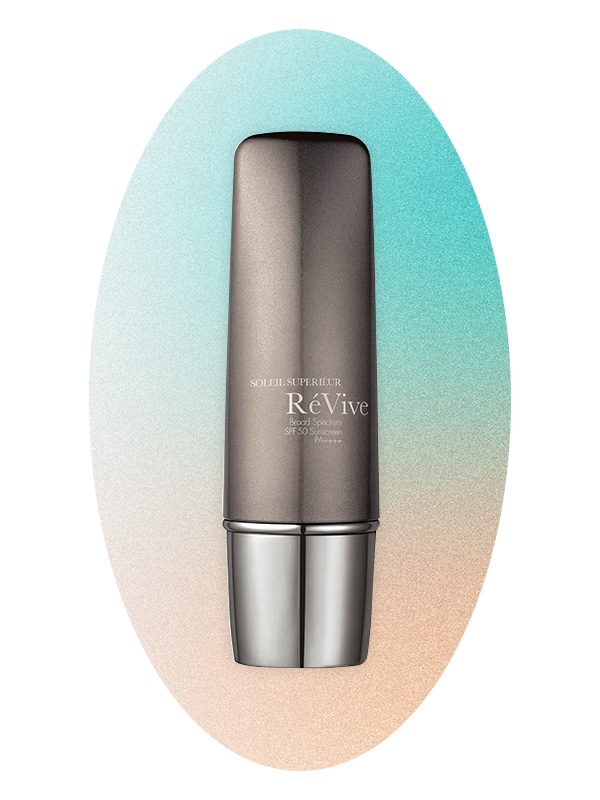
Made with dry and mature skin in mind (but suitable for people of all ages), this sunscreen is fabulous for providing a boost of hydration. Reviewers write it's nourishing enough to feel like a moisturizer, and Campbell agrees—see her hydrated skin below. It not only protects the skin from UVA rays, UVB rays, and pollutants, but it also repairs damaged skin with consistent use. "This lightweight, creamy texture is a perfect marriage of a patented peptide that addresses aging and dullness and UVA and UVB broad-spectrum protection that keeps sunburn at bay for hours," Campbell says.
Pros: Broad-spectrum; editor-approved; coral- and reef-safe; hydrating
Cons: May be too rich for those with oily skin
Active Ingredients: Three percent avobenzone, 10 percent homosalate, five percent octisalate, 2.6 percent octocrylene
White Cast: Must rub in for at least 14 seconds before it becomes invisible
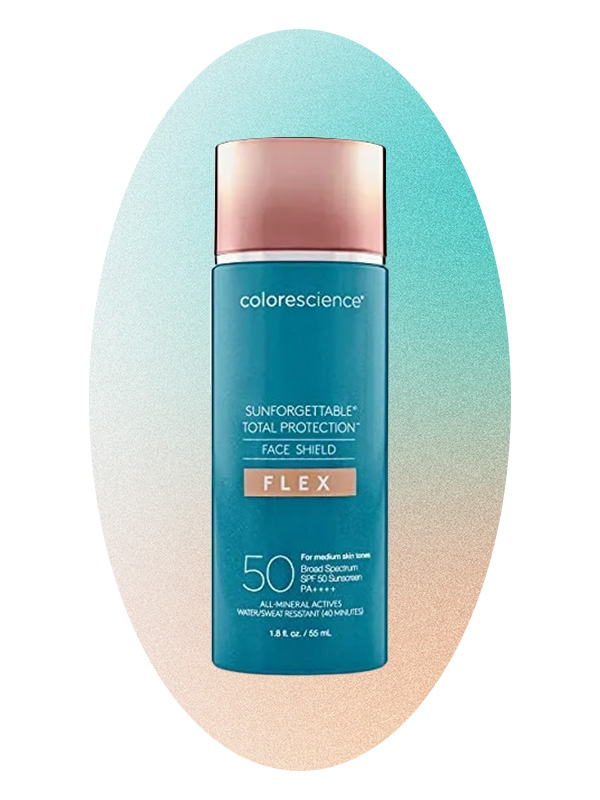
"My personal favorite sunscreen at the moment is Colorescience Sunforgettable Face Shield Flex SPF 50," Eyikogbe says. "It contains all mineral active ingredients and comes in four shades that cover a wide range of skin tones. It has a lightweight feel and provides a luminous and even skin tone. A lot of patients have told me it has replaced their need for foundation."
Pros: Dermatologist-approved; protects skin from both UV rays and pollution; vegan
Cons: Because it has a high concentration of zinc oxide, requires extra rubbing to fully absorb into skin
Active Ingredient: 12 percent zinc oxide
White Cast: Must rub in for at least 30 seconds to achieve no white cast
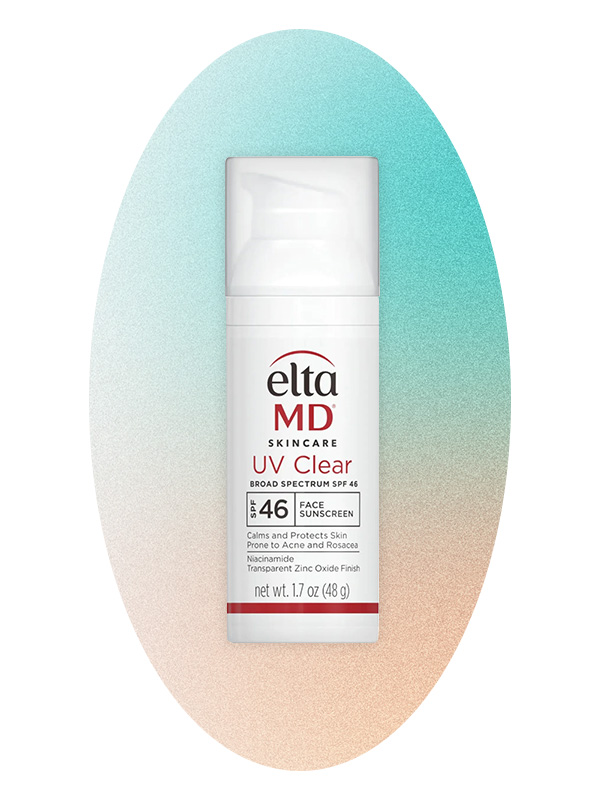
This new formula comes highly recommended by Dr. Camp. "Containing both mineral and chemical sunscreen ingredients, this SPF 46 daily face moisturizer contains hyaluronic acid for moisture, Vitamin E for antioxidant protection, and niacinamide to calm skin," he says. Campbell gives it her seal of approval, too, (see her smiling below) for its travel-friendly packaging, pleasant smell, and lightweight, non-greasy formula.
Pros: Dermatologist-approved; editor-approved; moisturizing
Cons: High price for a small bottle (1.7 ounces)
Active Ingredients: Nine percent zinc-oxide, 7.5 percent octinoxate; contains hydrating ingredients niacinamide, hyaluronic acid, and Vitamin E
White Cast? None
Other Highly Recommended Sunscreens
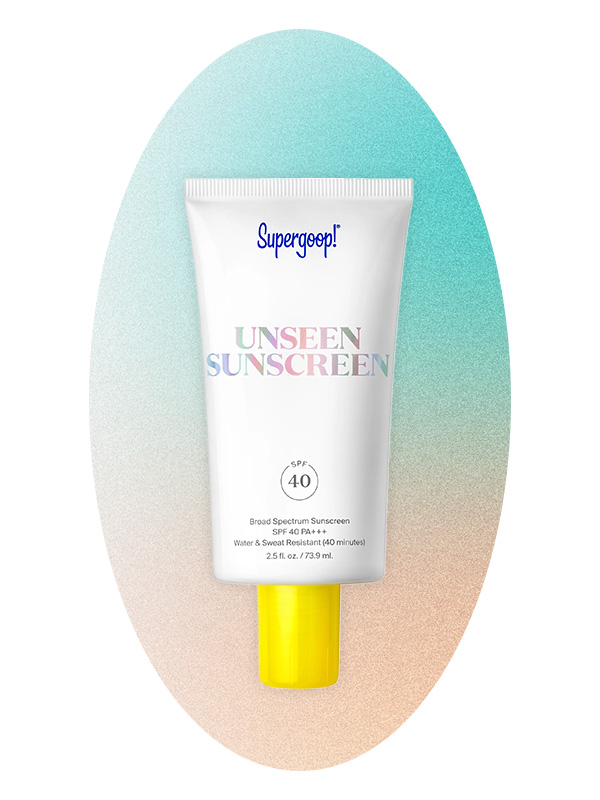
Supergoop's sunscreen has fun packaging and a buzzy reputation that lives up to the hype. "Made for all skin types, including sensitive skin, this mineral-based sheer face sunscreen doubles as a makeup-gripping primer," Dr. Camp says. Which is what Marie Claire's associate social media editor Ashlyn Delaney loves about it, too. "One thing about Ms. Supergoop: She will get the job done, honey. Not only does it protect me from the sun, but the glowing formula makes me shine without the white cast. I think this sunscreen is great for a no makeup day (if you apply a small, even amount), but it's better when you use it as a primer—it has an amazing grip." Watch her applying the sunscreen below.
Pros: Editor-approved; dermatologist-approved; mineral-based; works well under makeup
Cons: Finish may be too glowy for those with oily skin
Active Ingredient: Three percent avobenzone, eight percent homosalate, five percent octisalate, and four percent octocrylene
White Cast: None, but can give a subtle silver tint
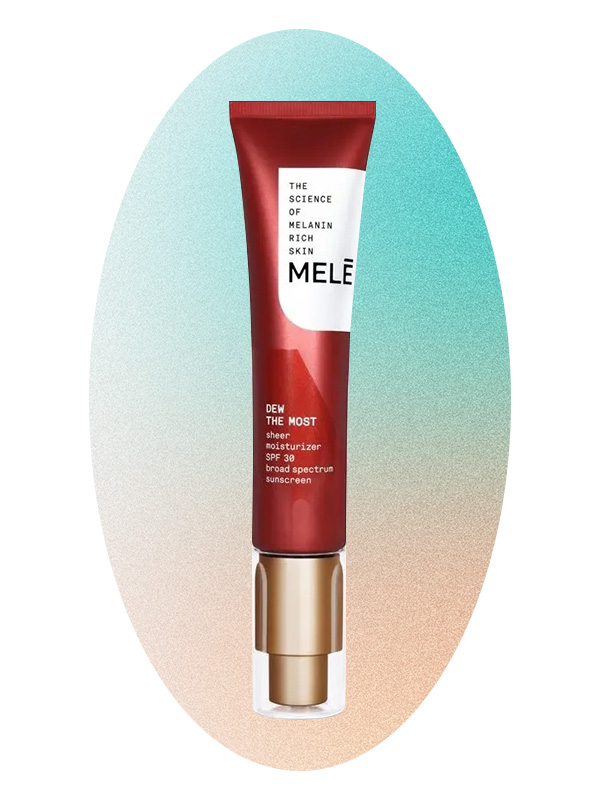
This formula is made with melanin-rich skin in mind and promises to protect the skin from UVA rays, UVB rays, indoor light, and even blue light from your computer screen. Dr. Camp is particularly impressed with its non-drying formula: "This daily SPF moisturizer offers SPF 30 protection and is formulated without parabens, alcohol, and mineral oil," he says. It also contains Vitamin E, which soothes and nourishes skin, and works to heal any existent sun damage or burn.
Pros: Made with dark skin tones in mind; broad-spectrum; award-winning
Cons: Has a light scent, which may not be ideal for everyone
Active Ingredients: Vitamin E and three percent niacinamide
White Cast: None
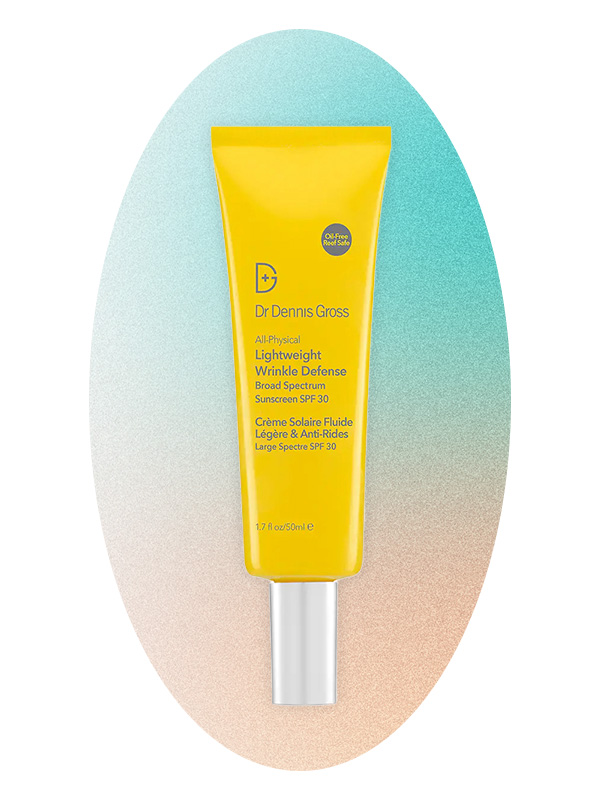
Sun exposure is one of the greatest contributing factors to visible and premature aging, so wearing sunscreen is one of the best habits for preventing wrinkles and fine lines. This formula by Dr. Dennis Gross specifically targets aging skin, incorporating ingredients like sea buckthorn and lingonberry in order to promote hydration, and has a whopping 16 percent zinc oxide to protect you from UVA and UVB rays. Watch Campbell apply below with minimal white cast.
Pros: Reef-safe; vegan; hydrating; broad-spectrum; contains natural ingredients
Cons: Relatively small container for the price
Active Ingredients: 16 percent zinc oxide
White Cast: Must rub in for at least 20 seconds to get rid of the white tint
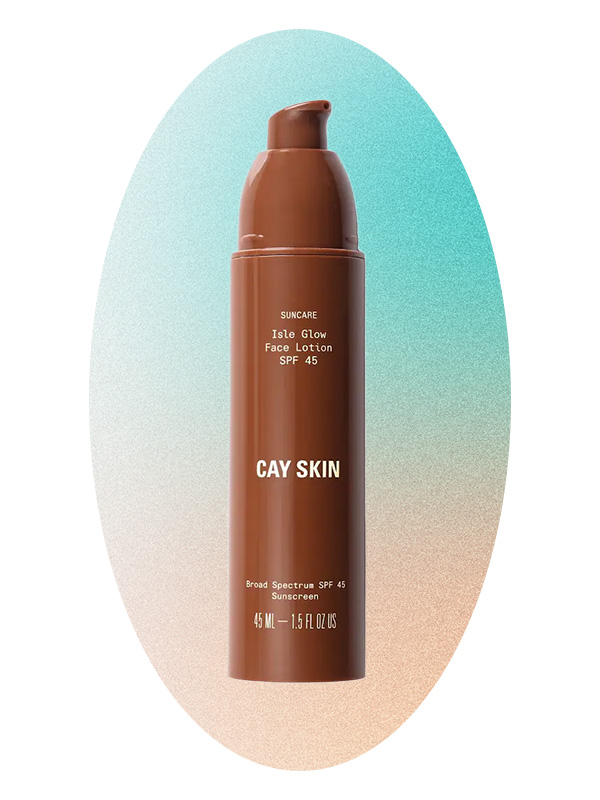
Vegan and dermatologically tested, this chemical formula is also crafted to protect skin from blue light damage. "The pearlescent formula of this SPF 45 facial sunscreen product also blends effortlessly on all skin tones to leave skin hydrated and illuminated," Dr. Camp says. "This makes it perfect for people who want a quick, effortless application when they're running out the door in the morning or simply reapplying on-the-go."
Pros: Dermatologist-approved and tested; non-comedogenic so it won't clog your pores; made for easy application and to wear under makeup; vegan
Cons: Some reviewers find it too rich or that the pump is too fragile
Active Ingredients: Three percent avobenzone, three percent octisalate, niacinamide, and five percent octocrylene
White Cast: Must rub in for at least 15 seconds to eliminate any white cast
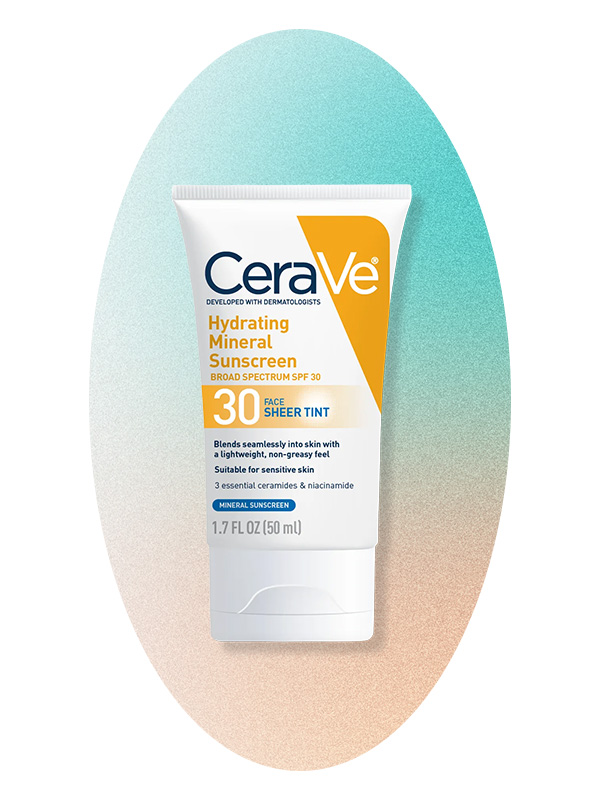
Cerave has long been lauded by customers and dermatologists alike for its effective, no-nonsense formulas, and this mineral sunscreen is no different. "Made with a sheer tint formula, this SPF 30 daily facial moisturizer contains mineral ingredients and blends into the skin without leaving a cast on the skin surface," Dr. Camp says.
Pros: Dermatologist-approved; lightweight; oil-free; allergy-tested
Cons: Some reviewers say it doesn't dry very quickly
Active Ingredients: 10 percent zinc oxide and 5.5 percent titanium dioxide
White Cast: None
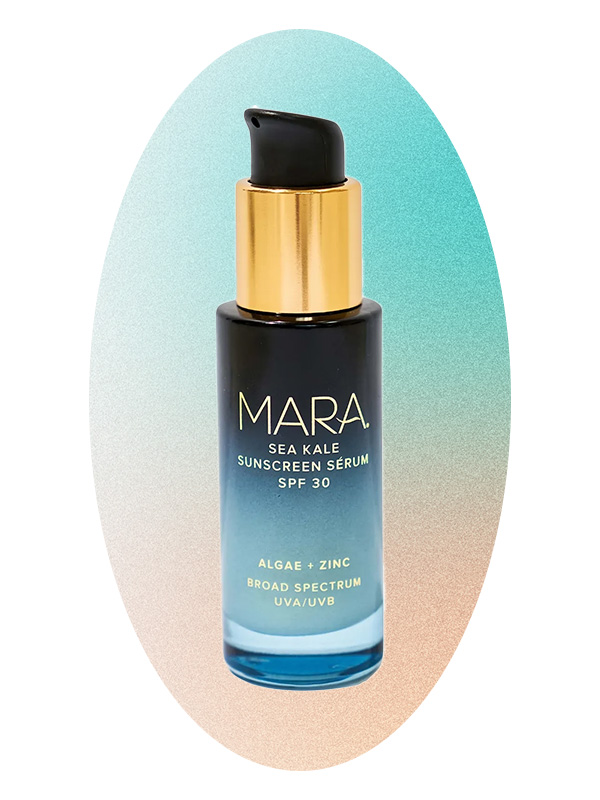
If you're spending time in the ocean, this is the best formula for you. Formulated with natural ingredients like blue sea kale and sea aster, this hydrating sunscreen is 100 percent reef-safe, meaning it won't adversely affect the natural environment while you're swimming. It also contains 13.2 percent zinc oxide and provides broad-spectrum protection, so you can rest assured that you're getting the best sun protection possible.
Pros: Reef-safe; broad-spectrum; hydrating; contains natural ingredients
Cons: Some reviewers dislike the dewy finish
Active Ingredients: 13.2 percent zinc oxide
White Cast: Must rub in for at least 30 seconds to ensure no white cast
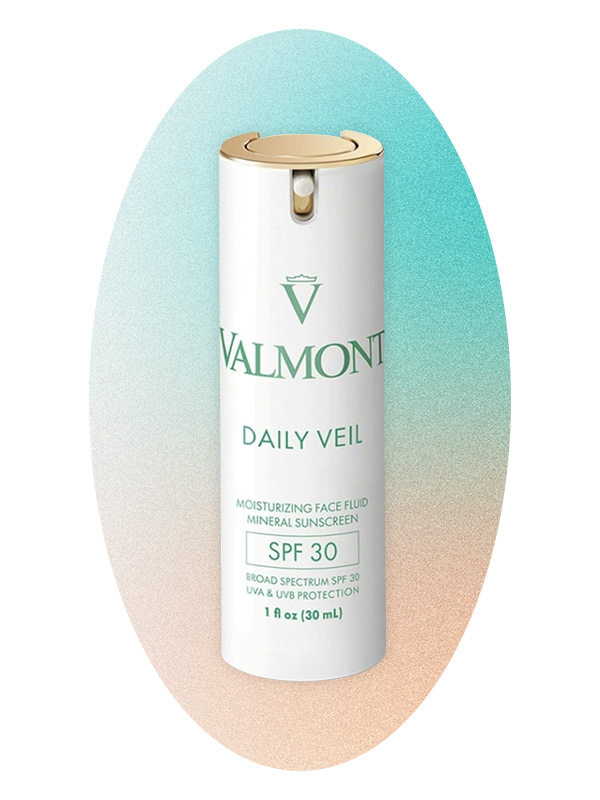
During our testing, this broad-spectrum sunscreen melted into Campbell's skin without much time or effort (see below) and didn't give her a white cast. It also provided a subtle glow that lasted for hours. She does admit, however, that it is pricey and has a "mature" scent that may not be for everyone, but if you want to smell "fancy," she notes, this is for you.
Pros: Editor-approved; hydrating; broad-spectrum
Cons: Expensive; strong scent
Active Ingredients: 7.4 percent purpose octinoxate, three percent sunscreen octocrylene, 16.4 percent sunscreen zinc oxide
White Cast: None
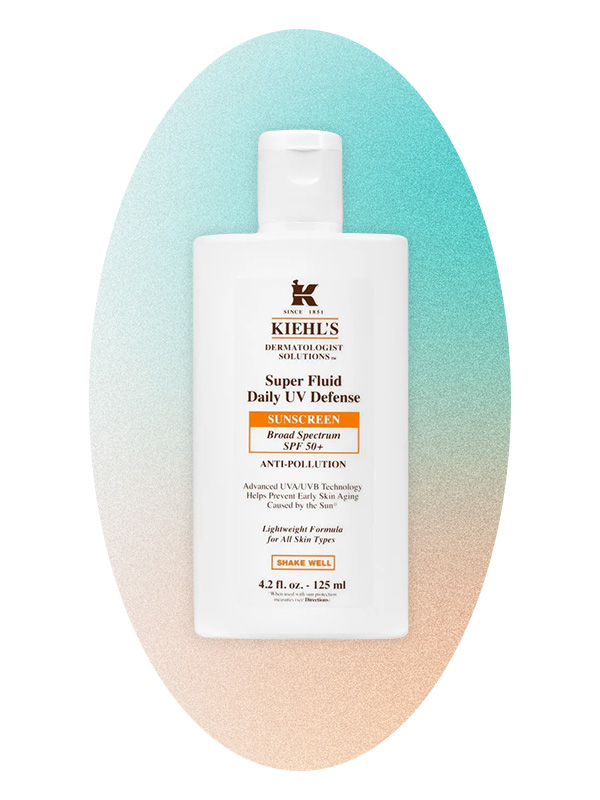
This formula from Kiehl's was made to protect skin from both sun damage and the potential harm of everyday pollutants. We tested this sunscreen on acne-prone skin and Campbell's normal-to-dry skin, and discovered it works well for both. "It's a classic sunscreen that delivers," says Campbell, who works in busy Manhattan. "My face actually feels protected when wearing it." Although she notes that it's challenging to rub in and has a runnier formula than she would like, overall it earns her recommendation for being highly effective.
Pros: Editor-approved; lightweight; protects against pollution; broad-spectrum
Cons: Some reviewers dislike the scent; runny; takes a little while to rub in
Active Ingredients: Three percent avobenzone, 10.72 percent homosalate, 3.21 percent octisalate, six percent octocrylene, and 3.86 percent oxybenzone
White Cast: Must rub in for at least 25 seconds to achieve minimal white cast
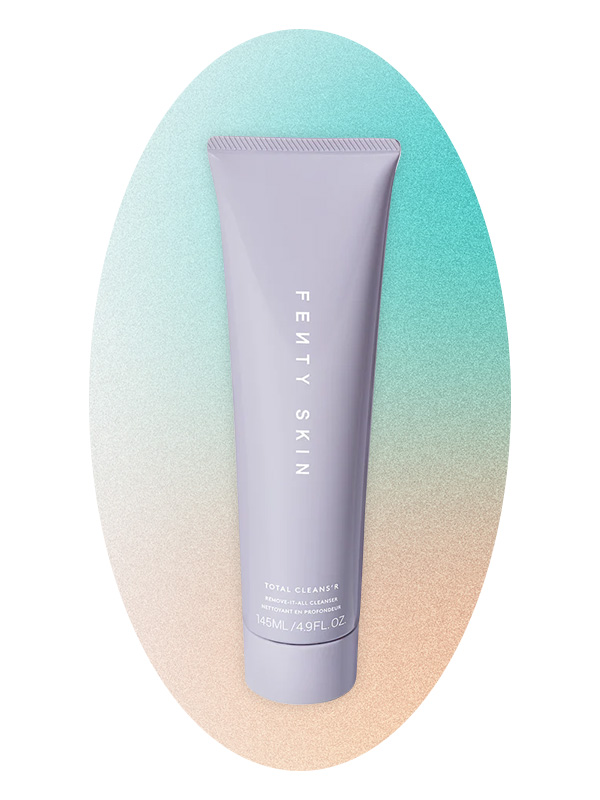
Marie Claire's contributing culture editor Quinci LeGardye says this formula takes only five to six seconds to blend (as she shows in the video below). "I’ve loved the Fenty Hydra Vizor since it first came out, and the fragrance-free version has become my holy grail sunscreen that I always return to," she says. "I love that it’s able to provide long-lasting moisture and sun protection in one step, and I barely need to rub it in before the product completely disappears."
Pros: Editor-approved; absorbs fast; fragrance-free; contains niacinamide; non-comedogenic so it doesn't clog pores; vegan
Cons: Although it's fragrance-free, it has a strong natural scent
Active Ingredients: Three percent avobenzone; nine percent homosalate, and 4.5 percent octisalate
White Cast: None
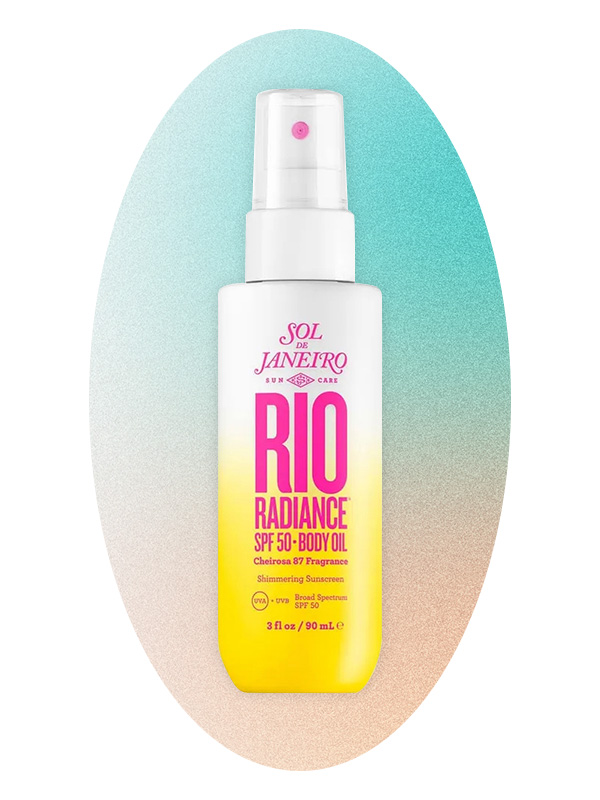
Sol de Janeiro has a devoted following for its fun, scented products meant to evoke Brazilian beaches, and this product fits right into that repertoire. Formulated with the gourmand, flowery Cheirosa 87 scent that Campbell says "smells like beach in a bottle," it contains broad-spectrum SPF 50 and is water-resistant for up to 40 minutes. While Campbell appreciates the oil (see her arm below)—which helps prevent a white cast—she notes that means the sunscreen wears off easily, so anyone using should reapply often.
Pros: Editor-approved; watery formula doesn't need to be rubbed in a lot to sink into skin; broad-spectrum; water resistant
Cons: Strong scent; requires frequent reapplication
Active Ingredients: Three percent avobenzone, 7.34 percent homosalate, five percent octisalate, 10 percent octocrylene
White Cast: None
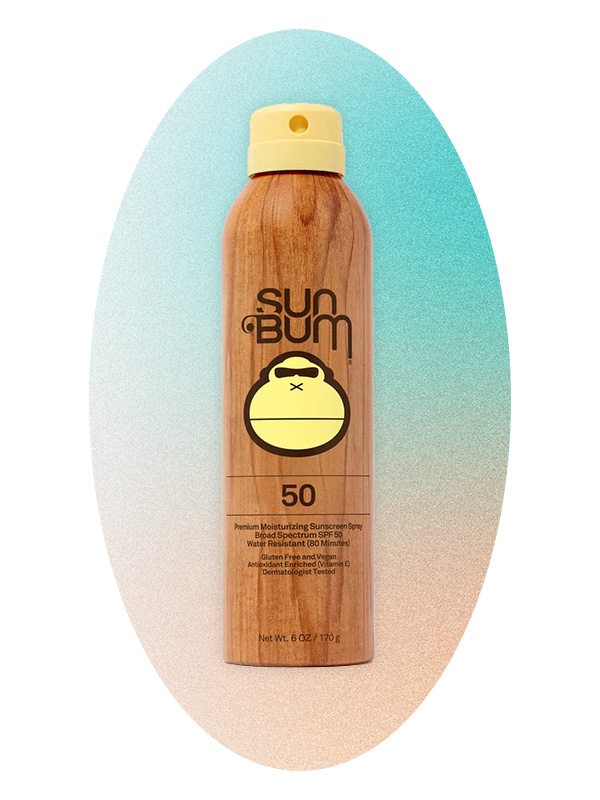
If you're looking for a high-quality body sunscreen that doesn't leave a white cast (see Campbell spray below) and under $10, consider this option from Sun Bum. In addition to providing SPF 50 sun protection, it protects against free radicals and uses Vitamin E to nourish dehydrated skin.
Pros: Editor-approved; affordable
Cons: Strong scent
Active Ingredients: Three percent avobenzone, 15 percent homosalate, five percent octisalate, seven percent octocrylene
White Cast: None
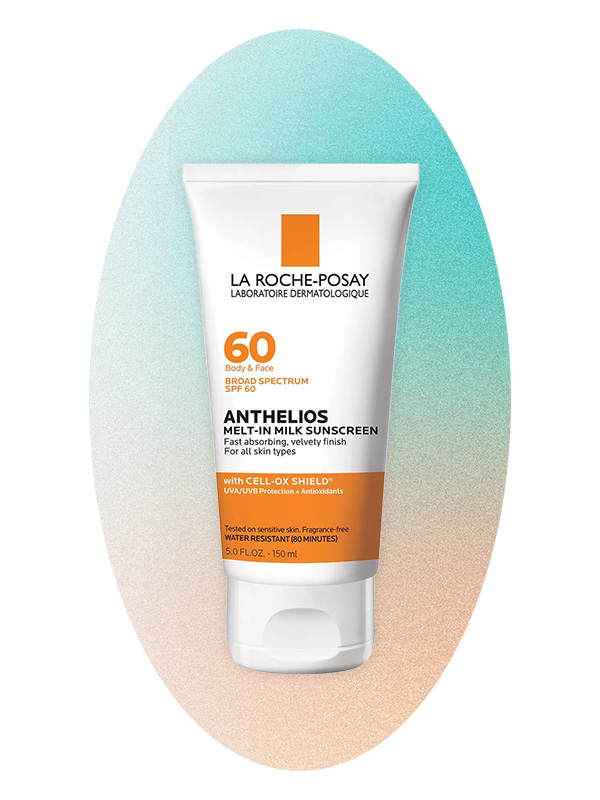
This milky sunscreen has a velvety finish and a traditional sunscreen smell. Broad-spectrum and tested on sensitive skin, it's perfect for use all over the body, and boasts an impressive SPF 60 that's water-resistant to boot. Campbell found the texture to be soft, and a tad runny (see below), she also notes that the dissolving process takes a minute, but that it "gets the job done."
Pros: Editor-approved; broad-spectrum; suitable for sensitive skin
Cons: Strong scent
Active Ingredients: Three percent avobenzone, 10 percent homosalate, five percent octisalate, seven percent octocrylene
White Cast: Must rub in for at least 13 seconds to achieve no white cast and 40 seconds if applying makeup
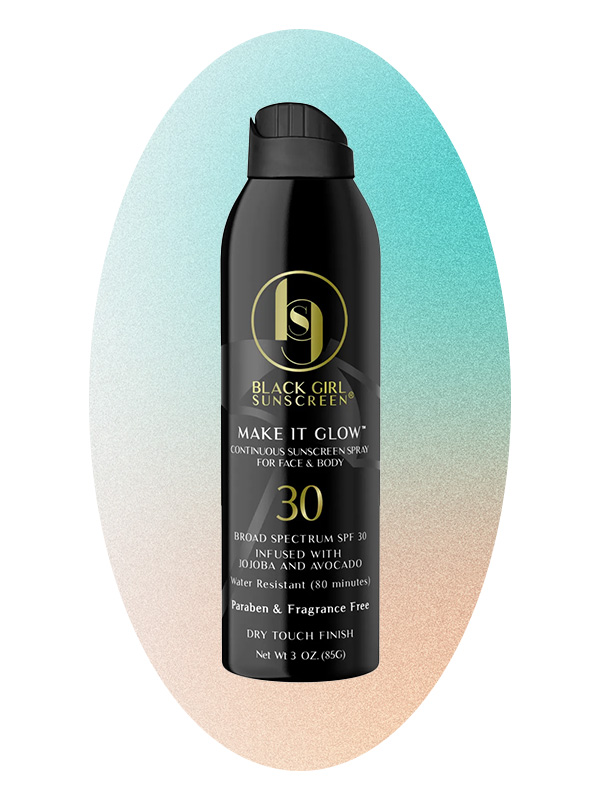
Per its name, this formula is made specifically with melanated skin in mind and contains natural hydrating ingredients such as jojoba oil and avocado oil to supplement its chemical formula. It earns a gold star from Campbell, as she loves that the broad-spectrum formula is water-resistant for up to 80 minutes (great for pool time without having to reapply!) and is effective 15 minutes after application.
Pros: Editor-approved; sheer formula; easy application
Cons: Some reviewers with oily or acne-prone skin say it caused them to break out
Active Ingredients: Three percent avobenzone, 10 percent homosalate, five percent octisalate, 2.75 percent octocrylene
White Cast: None
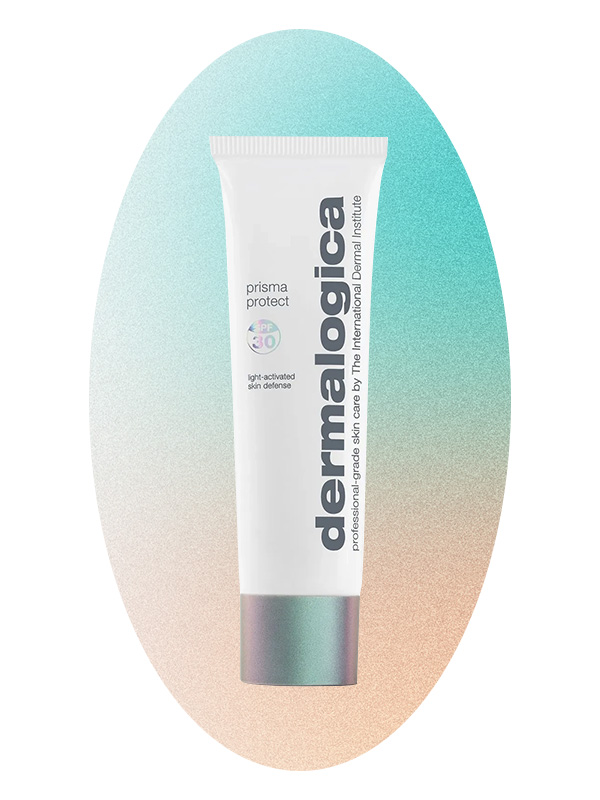
If you're struggling with hyperpigmentation, acne scarring, or other forms of uneven skin tone, consider this moisturizing formula from Dermalogica. In addition to providing broad-spectrum protection, it protects against blue light damage and pollution. It also contains matcha, an antioxidant-rich ingredient that supports long-term skin health and evenness with consistent use.
Pros: Evens skin tone; contains matcha, an antioxidant that protects the skin barrier
Cons: Takes 30 minutes to become effective
Active Ingredients: Three percent avobenzone, 10 percent homosalate, five percent octisalate, 10 percent octocrylene
White Cast: Must rub in for at least 20 seconds to eliminate white cast
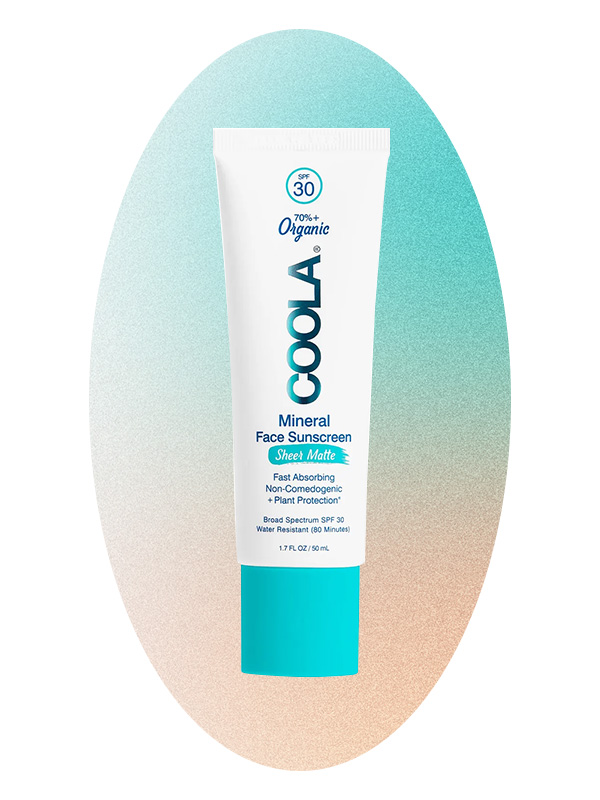
This clean formula was made with both your skin and the environment in mind. Its potent, protective active ingredient, non-nano zinc oxide (which basically means the mineral particles used in the formula are 100 nanometers in diameter), is 100 percent reef-safe, so you can swim in the ocean without a care in the world. It also has a matte finish that gives it a blemish-blurring effect and makes it ideal as a makeup primer.
Pros: Clean mineral formula; cruelty-free; reef-safe; vegan; fragrance-free
Cons: Some reviewers dislike its natural scent
Active Ingredients: 10.5 percent non-nano zinc oxide
White Cast: Must rub in for at least 15 seconds to make the sunscreen invisible
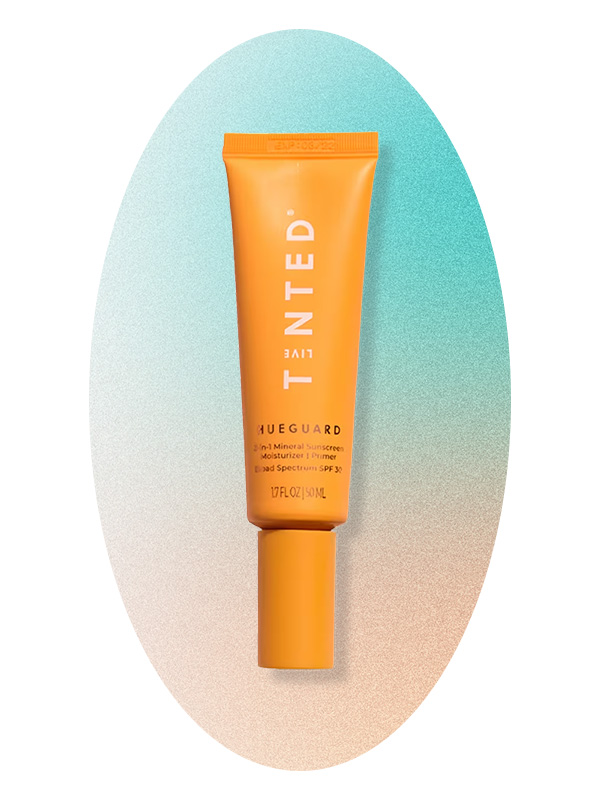
If you forget your moisturizer at home, this sunscreen from Live Tinted is great in a pinch. The mineral formula promises to work as a three-in-one moisturizer, sunscreen, and makeup primer, making it a favorite among frequent travelers. Its founder, Deepica Mutyala, also formulated it with dark skin in mind, so her first priority in founding Live Tinted was to create an effective sunscreen that didn't leave a white cast.
Pros: Cruelty-free; fragrance-free; non-comedogenic so it won't clog your pores
Cons: Small container for the amount of product
Active Ingredients: 18 percent zinc oxide
White Cast: Minimal
Finding the Right Sunscreen for Dark Skin
Avoiding a White Cast
People with dark skin tones have long avoided sunscreens not only because they thought them unnecessary, but also because they resulted in an unsightly white cast—a side effect that Eyikogbe attributes to ingredients. She explains, "The active ingredients in mineral sunscreen, zinc and titanium oxide, are large, rough, white particles. Because of this, when applied to the skin, traditional mineral sunscreen tends to leave an unwanted, ashy, white or grayish appearance."
As a remedy, Eyikogbe says that scientists have reduced the size of zinc and titanium oxide particles to make products blend seamlessly into the skin. When purchasing these sunscreens, look for tinted versions that are closest to your skin tone to help minimize the appearance of a white cast.
Choosing Between Chemical or Mineral
Both work on melanated skin, so the preference is up to you.
Mineral sunscreens often contain titanium or zinc, which Dr. Camp says "sit on the top layer of the skin, are not absorbed into the skin, and work upon application" by reflecting UV light off the surface of the skin. As mentioned, zinc and titanium can leave a white cast or undertone, but Dr. Boakye, who prefers mineral formulas, says that many mineral sunscreens absorb well into darker skin—they just require more effort to rub in.
Chemical sunscreens, on the other hand, convert UV radiation into heat, which is then released from the skin's surface. They often contain inorganic compounds such as zinc dioxide, oxybenzone, and octinoxate, and they're more sheer on darker skin tones than their mineral counterparts. "Chemical sunscreens need to be absorbed into the skin for about 20 minutes after application to be most effective," Dr. Camp says.
Understanding Broad-Spectrum Protection
According to The American Academy of Dermatology Association, broad-spectrum sunscreens guard against both UVA rays, which cause premature aging, and UVB rays, which cause sunburn. Both forms of UV radiation can cause cancer in the long term, so no matter what sunscreen formulation you opt for, you should always ensure it provides broad-spectrum protection with an SPF of 30.
Prioritizing Hydration
Any time you're crafting a skincare routine, ensure that your products are hydrating, especially if you're dealing with intense UV radiation or drying environmental factors like salt air and chlorine. This is especially important for dark skin tones, because Dr. Boakye says, "Melanin-rich skin tones tend to be on the drier side, so we want ingredients that are going to help hydrate our skin," says Dr. Boakeye. More specifically, she recommends looking out for elements glycerin, urea, ceramides, and niacinamide.
How to Correctly Apply Sunscreen
When it comes to application, Dr. Boakye stands by the popular "two-finger rule," which advises that you should apply two finger-lengths worth of sunscreen to your face, neck, and ears. You should also ensure you're applying sunscreen to other sun-exposed areas of your body, such as the décolletage, arms, upper back, legs, and even the tops of your feet.
If you're wearing protective hairstyles, or if you simply have a single part in your hair, remember that your scalp is also prone to sunburn and even UV radiation-induced melanoma. "There are a lot of innovations with sunscreen now where they have sunscreen oils, and you can apply that to your scalp," Dr. Boakye says.
And don't just slather on sunscreen when going outside. It's important to wear indoors, too.
This story is part of our So, Let's Talk About Sunscreen package, our guide to what you need to know to stay safe in the sun. You can read more here.
Meet the Experts
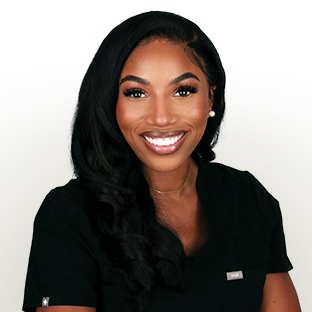
Tosin Eyikogbe is a nurse practitioner who began her career in oncology. An expert in identifying and preventing skin cancer, she has since transitioned to aesthetic dermatology and is passionate about combining her two areas of expertise in treating her patients. She was born and raised in Houston and still resides there.

Dr. Naana Boakye M.D., MPH, FAAD is a board-certified dermatologist and founder of Bergen Dermatology in Englewood Cliffs, New Jersey. A graduate of Temple University and George Washington University, she studied epidemiology and takes a holistic approach when treating her patients.

Brendan Camp, MD, is double board-certified in dermatology and dermatopathology and sees patients at MDCS Dermatology: Medical Dermatology & Cosmetic Surgery. Patients have been coming to him for his expertise managing medical conditions like acne, rosacea, eczema, warts, psoriasis, moles, and skin cancer, as well as cosmetic concerns and treatments with Botox, fillers, lasers, and other skin rejuvenation devices.
Dr. Camp graduated with honors from Cornell University, earning a degree in biochemistry. Dr. Camp is the author of several scientific articles that have been published in the Journal of the American Academy of Dermatology, the Journal of Cutaneous Pathology, and the Journal of Clinical Oncology. He has also presented at meetings of the American Academy of Dermatology, the American Society of Dermatopathology, and the Society for Investigative Dermatology.
Get exclusive access to fashion and beauty trends, hot-off-the-press celebrity news, and more.
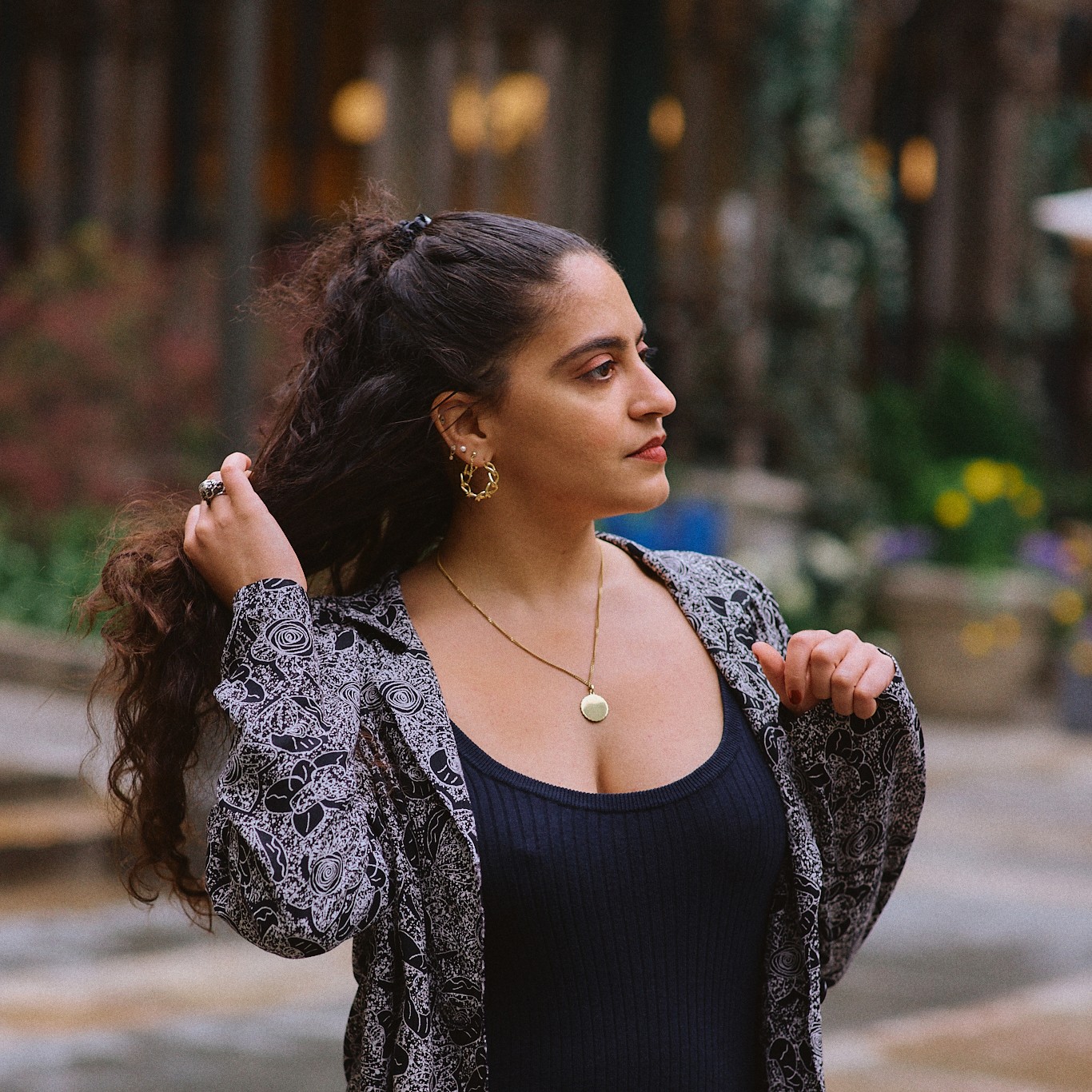
Gabrielle Ulubay is a Beauty Writer at Marie Claire. She has also written about sexual wellness, politics, culture, and fashion at Marie Claire and at publications including The New York Times, HuffPost Personal, Bustle, Alma, Muskrat Magazine, O'Bheal, and elsewhere. Her personal essay in The New York Times' Modern Love column kickstarted her professional writing career in 2018, and that piece has since been printed in the 2019 revised edition of the Modern Love book. Having studied history, international relations, and film, she has made films on politics and gender equity in addition to writing about cinema for Film Ireland, University College Cork, and on her personal blog, gabrielleulubay.medium.com. Before working with Marie Claire, Gabrielle worked in local government, higher education, and sales, and has resided in four countries and counting. She has worked extensively in the e-commerce and sales spaces since 2020, and spent two years at Drizly, where she developed an expertise in finding the best, highest quality goods and experiences money can buy.
Deeply political, she believes that skincare, haircare, and sexual wellness are central tenets to one's overall health and fights for them to be taken seriously, especially for people of color. She also loves studying makeup as a means of artistic expression, drawing on her experience as an artist in her analysis of beauty trends. She's based in New York City, where she can be found watching movies or running her art business when she isn't writing. Find her on Twitter at @GabrielleUlubay or on Instagram at @gabrielle.ulubay, or follow her art at @suburban.graffiti.art